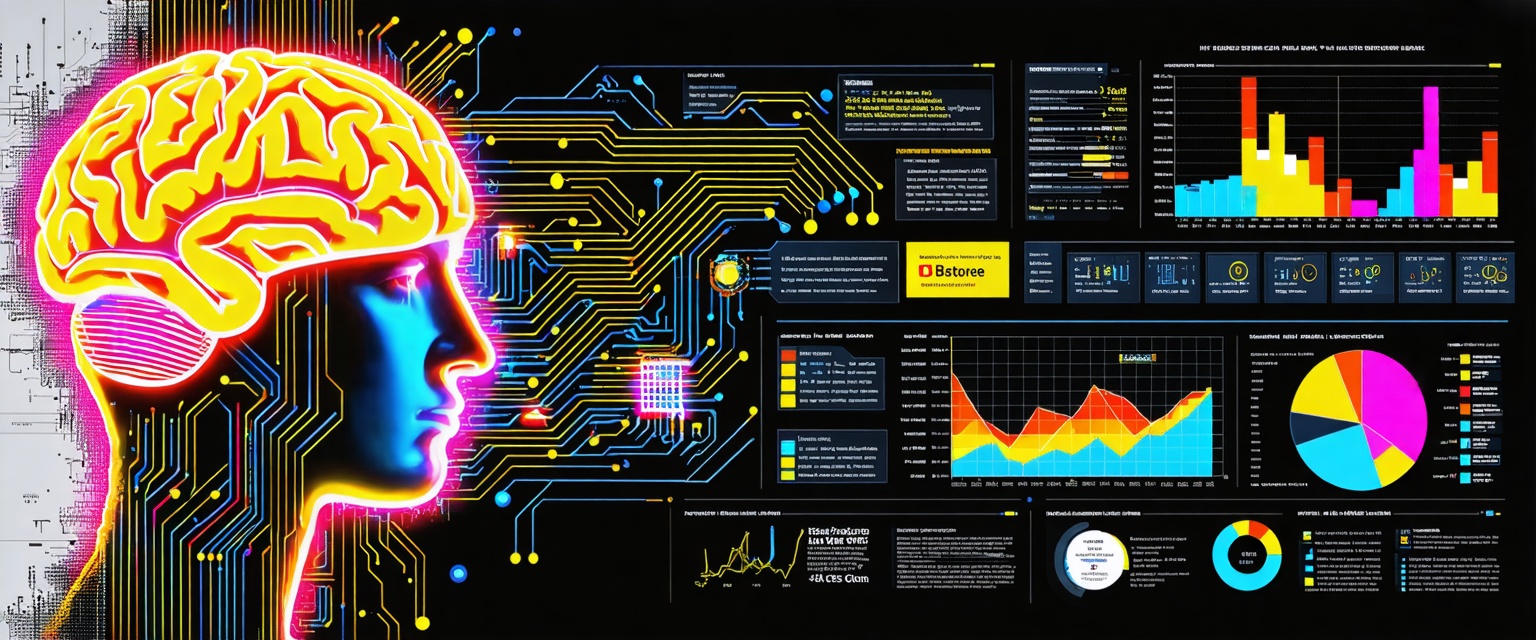Discover how AI agents streamline subcontractor qualification verification, saving project managers time and ensuring compliance in construction projects.
Before construction begins, project managers chase down insurance certificates, verify licenses, and log safety records—manually, across dozens of subcontractors. It’s slow, error-prone, and pulls focus from the job itself.
Thanks to advancements in Agentic AI, it's now becoming easier than ever to verify qualifications of subcontractors. Datagrid’s AI-powered data connectors automate this process, boosting compliance while returning focus to project execution.
This article breaks down how Agentic AI automates subcontractor qualification verification for project managers.
Understanding Subcontractor Qualification Verification
Subcontractor qualification verification is the systematic assessment of potential subcontractors before project engagement. This comprehensive evaluation ensures they meet the necessary standards to perform their designated tasks effectively and safely.
The process typically evaluates several key criteria:
- Licensing and Certifications: Valid trade-specific credentials
- Insurance Coverage: Adequate liability, workers' compensation, and professional coverage
- Financial Stability: Ability to handle project cash flow demands
- Safety Records: Past incident rates and safety protocol adherence
- Past Performance: Track record on similar projects
- Technical Capability: Expertise, equipment, and workforce adequacy
Qualification verification occurs in two distinct phases:
- Initial Qualification: The first comprehensive assessment when considering a subcontractor for a project or preferred vendor list.
- Ongoing Verification: Continuous monitoring throughout the project lifecycle to ensure maintained qualifications.
In practice, verification might involve document collection, interviews, site visits, and reference checks. Construction managers often encounter resistance when requesting sensitive financial information, which can be addressed through confidential one-on-one sessions.
The verification depth varies based on project size and complexity. A commercial high-rise requires more stringent processes than a small residential project.
This verification serves multiple purposes: risk mitigation, quality assurance, regulatory compliance, and project efficiency.
Why Verifying Subcontractor Qualifications Matters in Project Management
Verifying subcontractor qualifications isn't merely a procedural checkbox—it's a critical risk management function that directly impacts project success. The consequences of inadequate verification can ripple throughout your entire project.
Risk Mitigation
Unqualified subcontractors introduce significant risks to your project:
- Project Delays: Subcontractors lacking necessary skills or resources fail to meet deadlines, creating scheduling domino effects
- Cost Overruns: Inexperienced subcontractors often underestimate costs, leading to change orders and budget issues
- Quality Issues: Subpar workmanship results in rework, extending timelines and increasing costs
- Safety Concerns: Poor safety records or inadequate training increase accident risks and violations
Effective risk mitigation requires proactive measures to manage deal risks, including thorough verification of subcontractor qualifications.
Compliance and Legal Protection
Proper qualification helps shield your company from legal and financial liabilities. This includes verifying:
- Valid licensing and certifications
- Insurance coverage adequacy
- Safety regulation compliance
- Labor law adherence
Financial Stability
A subcontractor's financial health directly affects their ability to complete work as specified. Examining financial information, while sometimes met with resistance, remains essential for assessing a subcontractor's resilience against cash flow pressures and unexpected changes.
Project Manager's Responsibility
As a project manager, you must ensure every subcontractor meets requirements before work begins, including:
- Thorough background checks
- Reference verification
- Technical capability assessment
- Financial stability evaluation
- Insurance and safety record confirmation
Industry Standards and Continuous Monitoring
The construction industry increasingly recognizes the importance of robust qualification processes. Most general contractors and trades value specialized software for managing these aspects, highlighting technology's growing role in risk management.
Remember that qualification isn't a one-time event but requires continuous monitoring throughout the project lifecycle, including regular updates on insurance, licensing, performance, financial health, and safety records.
A rigorous qualification process sets the foundation for project success, minimizes risks, and builds lasting partnerships with reliable subcontractors.
How AI Agents Automate Subcontractor Qualification for Project Managers
The traditional subcontractor qualification verification process has long been a bottleneck for construction project managers. Manual document collection, compliance checks, and ongoing monitoring consume valuable time and resources while introducing human error risks.
AI agents transform this process through automation and enhanced analysis.
Streamlining the Verification Process
AI agents automate the labor-intensive aspects of subcontractor qualification by:
- Intelligent Document Processing: Using natural language processing and computer vision to extract and validate key information from licenses, insurance certificates, and financial statements
- Mass Document Analysis: Processing thousands of documents simultaneously to identify critical requirements and compliance needs
- Automated Data Validation: Cross-referencing extracted information against multiple sources to verify accuracy
This automation dramatically reduces administrative workload while accelerating the verification timeline, ultimately enhancing construction project management.
Enhanced Data Analysis and Risk Assessment
AI excels at analyzing vast datasets to identify potential risks that might escape human notice. By integrating historical project data, financial records, and performance metrics, AI agents generate comprehensive risk profiles for each subcontractor and can interpret queries and leverage historical data.
Continuous Monitoring and Proactive Alerts
Unlike periodic manual checks, AI agents provide real-time monitoring of subcontractor qualifications, including subcontractor performance tracking, alerting project managers to:
- Expiring certifications or licenses
- Changes in financial stability indicators
- Safety record updates
- Performance issues on other projects
This continuous monitoring enables proactive risk management rather than reactive problem-solving.
Improving Compliance and Regulatory Adherence
Construction faces complex and evolving regulations. AI agents stay current with changing requirements and automatically apply updates to the verification process. AI agents in construction help reduce compliance violations while eliminating the need for project managers to constantly research regulatory changes.
Integration Considerations
While AI offers significant benefits, successful implementation requires attention to:
- Data Privacy and Security: Implementing robust protection for sensitive subcontractor information
- System Integration: Ensuring seamless connection with existing project management platforms
- Training and Adoption: Providing appropriate guidance for teams to effectively use AI-generated insights
- Human Oversight: Maintaining appropriate supervision, especially for complex cases
Datagrid for Construction Proposal and Vendor Management
Construction professionals juggle complex proposal documents, vendor qualifications, and extensive bid materials across multiple projects daily. Datagrid's AI-powered platform offers specialized solutions that streamline these processes and enhance your team's capabilities.
RFP Response Acceleration
Datagrid's AI agents process thousands of RFP documents simultaneously, extracting critical requirements, compliance needs, and submission deadlines. This acceleration ensures your responses are complete and submitted on time, while your team focuses on crafting compelling proposals rather than document analysis.
Vendor Qualification Automation
AI agents analyze vendor documentation, safety records, insurance certificates, and performance history to generate comprehensive qualification reports and risk assessments, streamlining vendor document management. This automation enables data-driven decisions about potential partners with unprecedented speed and accuracy.
Bid Comparison Intelligence
Comparing multiple bid packages traditionally consumes days of valuable time. Datagrid automatically extracts and organizes pricing, materials, timelines, and exclusions from various bids, creating side-by-side comparisons that highlight key differences and value propositions.
This feature transforms bid analysis from a week-long process into a matter of hours.
Subcontractor Performance Analysis
Your historical project data contains valuable insights about subcontractor performance that often remain untapped. Datagrid processes this information to evaluate reliability, quality, and schedule adherence across projects, informing future vendor selection with concrete data rather than memory or impression.
Material Specification Compliance
Datagrid analyzes product submittals against project specifications to identify compliance gaps, substitution opportunities, and potential installation conflicts before materials arrive onsite. This proactive approach prevents costly delays and rework that often result from specification mismatches.
Contract Term Extraction
Review of vendor agreements for critical terms, payment schedules, and change order provisions becomes automatic with Datagrid. The platform identifies these crucial elements across all contracts, enabling more effective management and risk mitigation without tedious manual review.
Document Version Control
Datagrid tracks and compares proposal revisions, identifying substantive changes between versions and ensuring your team works with the most current information and requirements. This capability eliminates the costly errors that occur when decisions are based on outdated documents.
By implementing Datagrid, your procurement team shifts focus from document processing to strategic vendor relationships and value engineering. The platform handles document-intensive analysis that traditionally creates information bottlenecks and procurement delays.
Simplify Construction Tasks with Datagrid's Agentic AI
Don't let data complexity slow down your team. Datagrid's AI-powered platform is designed specifically for teams who want to:
- Automate tedious data tasks
- Reduce manual processing time
- Gain actionable insights instantly
- Improve team productivity
See how Datagrid can help you increase process efficiency.
Create a free Datagrid account.













